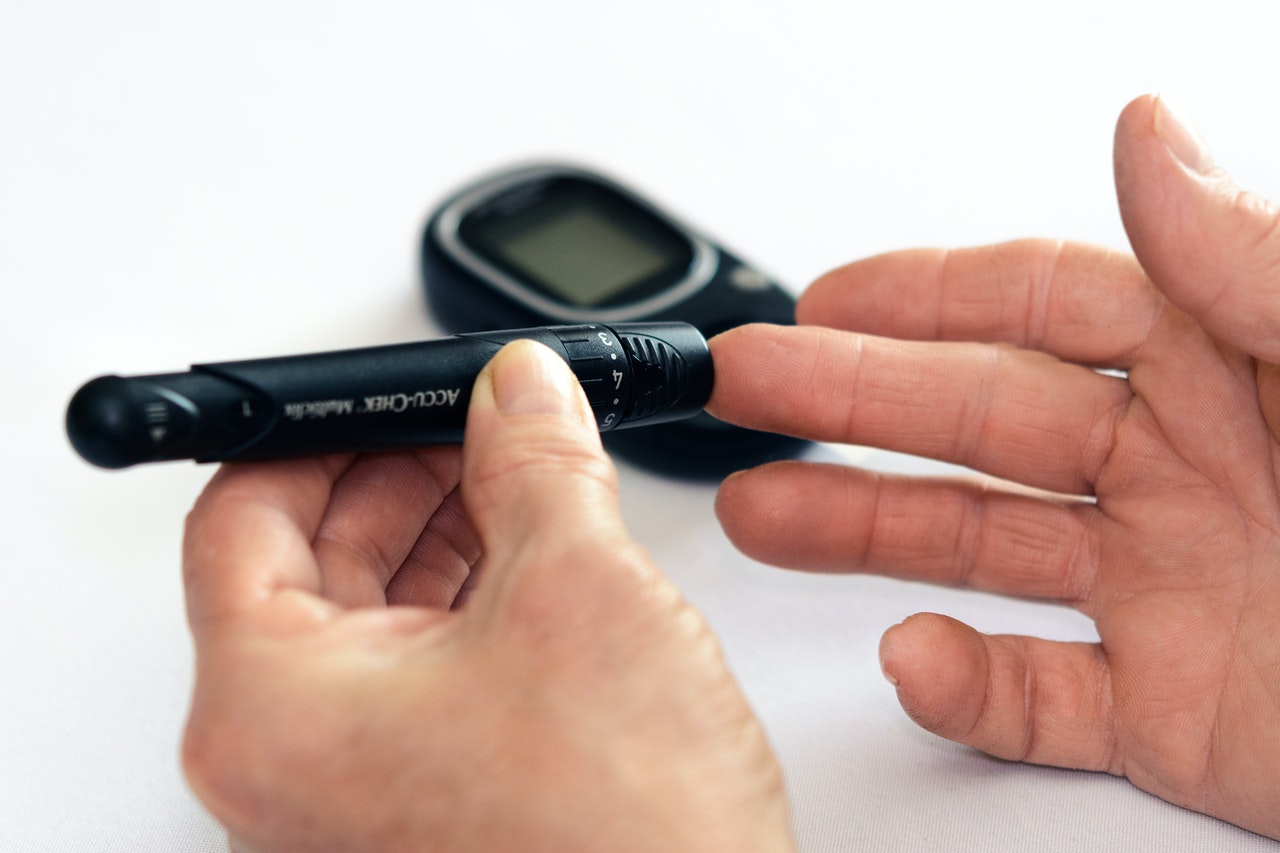
What are the Symptoms of Low Magnesium in the Body?
Magnesium is a mineral that exists in the human body. It is very important because it is needed in order for more than 300 biochemical reactions to be carried out in the body. This mineral plays an essential role in helping nerve and muscle function. Not only that, it also regulates blood sugar levels and aids the body in producing energy. The amount of magnesium a person should be getting depends on gender and age. For adult men, the recommended amount of magnesium is 400 - 420 mg per day and 310 - 320 mg for women.
What is magnesium?
Magnesium is one of seven essential macrominerals. Macrominerals means your body needs these minerals in larger amounts. This group of seven is made up of calcium, phosphorus, magnesium, sodium, potassium, chloride and sulfur.
According to William C. Shiel, magnesium is a mineral involved in many processes in the body including nerve signalling, building healthy bones and normal muscle contraction.
This mineral exists in all unprocessed foods. High levels of magnesium exist in nuts, unmilled grains, dark-green leafy vegetables, peas and beans.
Magnesium Normal Range - What you need to know about magnesium levels
Seeing as magnesium is not a common supplement, there are many things to know about magnesium. For example, are your magnesium ranges normal?
A disturbed magnesium balance will lead to hypomagnesemia and hypermagnesemia.
Hypomagnesemia is defined as a serum magnesium level less than 1.5mg. This condition is mostly associated with a lack of magnesium (malnutrition) intake, impaired intestinal absorption of magnesium (diarrhea) or increased renal losses of magnesium such as use of diuretics.
Hypermagnesemia is different from hypomagnesemia whereby there is an excessive intake of magnesium. This excessive intake causes kidney failure as your kidneys are not able to process and excrete magnesium and other electrolytes.
How can you tell if you have a magnesium deficiency?
There are a few symptoms to look out for that indicate a magnesium deficiency in your body. Watch out for these signs like:
Muscle twitches and cramps
Muscle twitches, tremors and cramps are signs of a magnesium deficiency. In some cases, it can escalate to seizures and convulsions.
This takes place due to a higher flow of calcium into nerve cells which then hyper stimulate the muscle nerves.
While magnesium supplements don’t help to revert this side effect, one will have to increase their magnesium intake naturally through food sources.
However, please take note that muscle cramps can also be a side effect of other health conditions. If you are regularly experiencing muscle twitches and cramps, please consult your doctor.

Photo by Wallace Chuck from Pexels
Fatigue and muscle weakness
Although it is very normal to feel tired every once in awhile, if you are experiencing muscle weakness and fatigue often, there is a high chance that you are magnesium deficient.
When someone is magnesium deficient, the feeling of tiredness is often accompanied by muscle weakness. This condition is also known as myasthenia.
Irregular heartbeat
An irregular heartbeat (also known as arrhythmia) is a serious condition. It causes shortness of breath, chest pain, light-headedness and also fainting.
Low levels of magnesium can result in an irregular heartbeat for some people. A person with this deficiency may also potentially have potassium deficiency, called hypokalemia, which is a title for another day.

Arrhythmia is quite difficult to identify as symptoms are often mild. However, people with low levels of magnesium will experience heart palpitations as a result of an irregular heartbeat.
High blood pressure
Several studies on animals conclude that magnesium deficiency may cause high blood pressure. According to Laurant, magnesium deficiency contributes to high blood pressure, which may increase the risk of developing heart disease.
In 1998, an observational study of humans was carried out and it was proven that lack of magnesium through dietary intake ups the odds of higher blood pressure. On the other hand, a meta-analysis of studies on magnesium concludes that adequate intake of magnesium can lower blood pressure.
Causes of Hypomagnesemia
Hypomagnesemia takes place when a person is unable to absorb enough magnesium. It can also be caused by too much magnesium being released from the kidney, thus causing a lack of the mineral in the body.
Certain causes of hypomagnesemia are:
- Alcohol consumption
Excessive alcohol consumption can lead to imbalances of electrolytes or nutrients, and it may cause the body to release more magnesium than usual.

Photo by Kaboompics .com from Pexels
- Diarrhoea
Chronic diarrhoea can lead to an imbalance of electrolytes. People with related conditions such as Crohn’s disease are more vulnerable to hypomagnesemia.
- Diabetes
High levels of glucose in the kidneys can cause the body to release more of this mineral. People with type 2 diabetes or insulin resistance may develop magnesium deficiencies. Diabetic ketoacidosis is a life-threatening complication of diabetes, and it can reduce magnesium levels.
- Organ failure
Organ failure, particularly in the kidneys, may cause the body to excrete too much magnesium.
- Pregnancy and breast-feeding
In this phase of life, women need extra doses of magnesium in the body as it plays an active role in deactivating adrenaline, a type of stress hormone that interferes with the production of breast milk.

Photo by Negative Space from Pexels
- Age
As a person ages, it becomes more difficult to absorb magnesium, thus causing hypomagnesemia.
Treatment of Hypomagnesemia
Hypomagnesemia can be treated with oral magnesium supplements and with an increased intake of this mineral in the diet. It’s important to eat a balanced diet in order to ensure you’re getting enough magnesium.
If you have conditions such as Crohn’s disease or diabetes, or take diuretic medications consult with your doctor first to ensure that you do not develop low magnesium levels.
Prevention of Hypomagnesemia
There are ways to ensure that you are taking in an adequate amount of magnesium for your body. Some of the way include:
- Integrating nuts and seeds into your diet.
- Consuming oily fish once or twice a week.
- Making cashew milk by adding a handful of the nuts to 300ml of water.
- Throwing in a handful of spinach or oats into smoothies.
- Intaking supplements
What diseases are caused by lack of magnesium?
With any lack of minerals, be it calcium, phosphorus, magnesium or any other, there comes a host of diseases that is caused by that lack.
Some of the health issues are:
Hypertension and cardiovascular diseases
Adequate magnesium plays an important role in cardiovascular health. It acts as a key cardiovascular regulator as it maintains electrical, metabolic and vascular homeostasis.
When there is a lack of magnesium in the body, it can lead to severe cardiovascular diseases such as hypertension, cardiomyopathy, cardiac arrhythmia, atherosclerosis, dyslipidemia and diabetes.
Type 2 diabetes
Magnesium deficiency has been linked to insulin resistance, which is central to the development of type 2 diabetes.

Photo by PhotoMIX Company from Pexels
Research shows consuming 100 milligrams (mg) of magnesium by consuming foods rich in the mineral may decrease the risk of diabetes by 15%. People with diabetes lose a large amount of magnesium in their urine because as their body clears out excess sugar this way.
It is quite worrying especially when one is on diuretics. This is because more urine means more chance of a loss of magnesium.
Osteoporosis
Magnesium deficiency contributes to osteoporosis, a disorder characterized by weak bones and an increased risk of bone fractures.
There are several factors that cause osteoporosis - lack of vitamin D and K, age factor and lack of exercise.
Surprisingly, magnesium deficiency is also a risk factor of osteoporosis. A study conducted on rat confirmed that poor magnesium intake actually results in reduced bone mass.
What is the best form of magnesium to take?
Absorption of magnesium from different kinds of magnesium supplements varies. The best form of magnesium that can be taken are:
- Magnesium citrate
This is one of the most common forms of Mg on the commercial market. The magnesium is bonded to citric acid, which increases the rate of absorption.
Citrate is a larger molecule than the simple oxygen of oxide. Therefore, there is less magnesium by weight in citrate form than in the oxide form.
This is the most commonly used form in laxative preparations.
- Magnesium Taurate
This is a less common form and is typically taken for cardiac conditions and heart function in general.
Magnesium helps the heart muscle relax and also helps the blood vessels that feed the heart to open and deliver more blood to the heart tissue itself.
Taurine is an amino acid that is known to feed cardiac muscles and enhance the quality of contractions of the heart so if you’re taking Mg for heart function this is probably the best form for you.
Again, taurine is a larger molecule so there is a lower magnesium amount by weight.
- Magnesium chloride
Magnesium chloride is primarily used to supplement your dietary intake of magnesium. While it doesn't "treat" conditions per se, it can help overcome magnesium deficiencies and in doing so, improve or restore certain physiological functions.
- Magnesium lactate
Magnesium lactate is a naturally occurring mineral that is needed in the body to support the function of the heart, nervous system, and digestive system. It is also used as a mineral supplement to treat magnesium deficiency.
Always remember to take magnesium lactate as prescribed by the doctor. If you are experiencing side effects such as stomach upset or diarrhoea, magnesium lactate may be consumed with food.
As a start, you can try Holistic Way Melatonin 10mg with Magnesium. Not only does it give you a boost of magnesium, it also helps you sleep better as each tablet contains melatonin.
Conclusion
Magnesium plays a very important role as it is an essential mineral for sustaining a healthy heart, bone health, and properly functioning nervous and immune systems. Magnesium deficiency can cause severe issues such as cardiovascular diseases, type 2 diabetes and osteoporosis. Therefore, it is important to consume food or supplements that has adequate amounts of magnesium to avoid magnesium deficiency.
REFERENCES
Magnesium deficiency: 10 common signs and symptoms (online) Available at:
https://www.getroman.com/health-guide/magnesium-deficiency-signs/ [Accessed 19 August 2020]
Magnesium (online) Available at: https://ods.od.nih.gov/factsheets/Magnesium-HealthProfessional/#:~:text=Early%20signs%20of%20magnesium%20deficiency,occur%20%5B1%2C2%5D. [Accessed 19 August 2020]
7 Signs and Symptoms of Magnesium Deficiency (online) Available at: https://www.healthline.com/nutrition/magnesium-deficiency-symptoms#section1 [Accessed 19 August 2020]
Medical Definition of Magnesium (online) Available at: https://www.medicinenet.com/script/main/art.asp?articlekey=4243 [Accessed 19 August 2020]
Hypomagnesemia and hypermagnesemia (online) Available at: https://pubmed.ncbi.nlm.nih.gov/30220246/ [Accessed 19 August 2020]
Hypomagnesemia (online) Available at: https://www.merckmanuals.com/professional/endocrine-and-metabolic-disorders/electrolyte-disorders/hypomagnesemia [Accessed 19 August 2020]
Fluid and Electrolyte Series: Balancing act: Hypomagnesemia & hypermagnesemia (online) Available at: https://www.nursingcenter.com/journalarticle?Article_ID=1235604&Journal_ID=54016&Issue_ID=1235470 [Accessed 19 August 2020]
Magnesium Metabolism and its Disorders (online) Available at: https://www.ncbi.nlm.nih.gov/pmc/articles/PMC1855626/#:~:text=Magnesium%20deficiency%20can%20cause%20a,coronary%20heart%20disease%2C%20and%20osteoporosis. [Accessed 19 August 2020]
Hypomagnesemia (Low Magnesium) (online) Available at: https://www.healthline.com/health/hypomagnesemia#treatment [Accessed 19 August 2020]
7 Signs and Symptoms of Magnesium Deficiency (online) Available at: https://www.healthline.com/nutrition/magnesium-deficiency-symptoms#section8 [Accessed 19 August 2020]
Why You Might Need More Magnesium if You Have Type 2 Diabetes (online) Available at: https://www.everydayhealth.com/type-2-diabetes/diet/diabetes-magnesium-deficiency-you-need-more-this-mineral/#:~:text=Magnesium%20deficiency%20has%20been%20linked,of%20developing%20the%20chronic%20disease. [Accessed 19 August 2020]
10 Interesting Types of Magnesium (and What to Use Each For) (online) Available at: https://www.healthline.com/nutrition/magnesium-types#4.-Magnesium-lactate [Accessed 19 August 2020]



Leave a comment